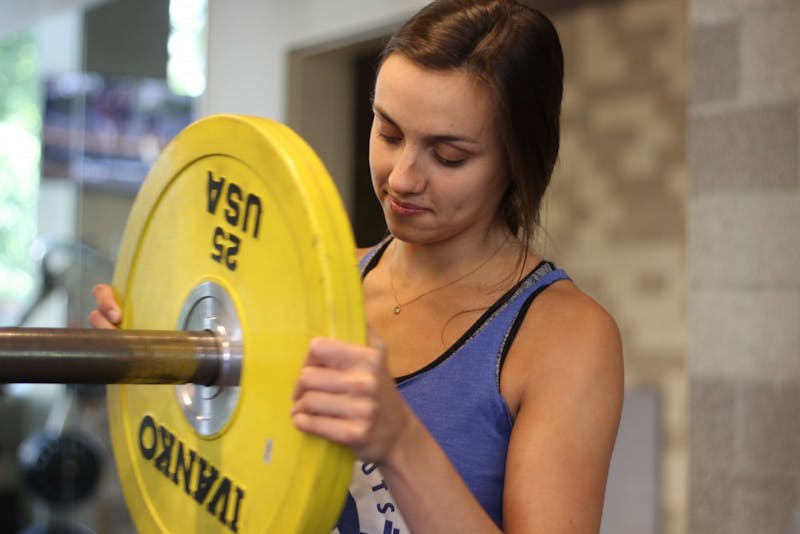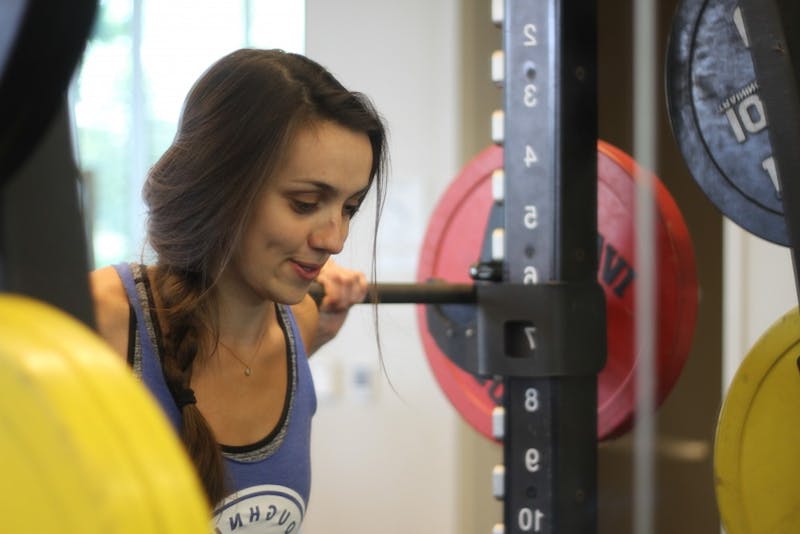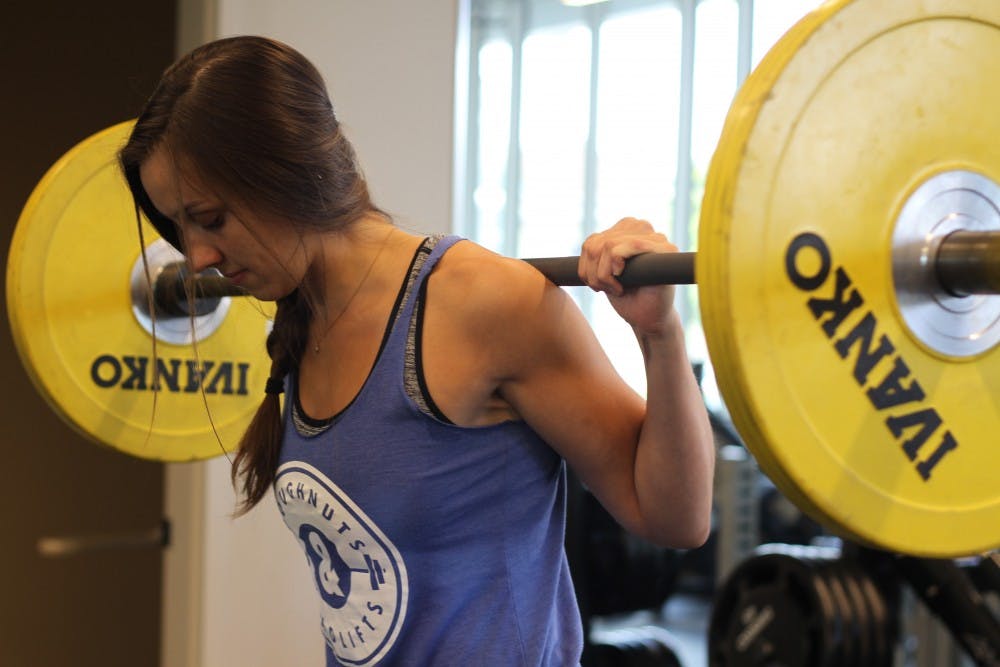Orthorexia Nervosa: It’s the other eating disorder. The one most people don’t really talk about.
But senior marketing major Ali Gay knows the meaning of the word all too well.
As a former spin instructor at the Beauchamp Center, the classes Gay taught last year had a faithful following. Every one of them was packed.
She looked strong as she sweat from the bike, motivating her class to push their limits.
But she hasn’t always been so strong. Her journey to balancing food, her body and her mental wellness has been a long one.
Gay struggled with orthorexia and binge eating for over two years.
According to the National Eating Disorders Association, orthorexia means a “fixation on righteous eating.” It begins as an innocent attempt to eat healthier, but turns into a fixation on food quality and purity.
Today, Gay says she’s finally in a place where she feels she is truly past her struggles with eating disorders, and she has taken to Instagram to speak out about her long journey with food and exercise. She is proof that, with help and time, eating disorders can be healed.
And reactions from some of her 25 thousand Instagram followers on her account, Eatburnbalance, show that she’s inspired more than a few of them.

An unhealthy obsession
Gay played soccer her whole life until she pulled her hamstring her senior year of high school.
Without the constant exercise, she noticed that her body was changing.
“I started getting a little bit uncomfortable in my own skin,” Gay said. “Especially because at that point in high school I’m comparing myself to everyone; all of the really tan, fragile-looking, skinny girls. That’s what I strived to be and that’s what I wanted to be.”
She started visiting the gym every day and completely cut out fats from her diet. She became obsessed with controlling her food and exercise regimen.
Toward the end of her senior year of high school, her house caught fire from complications during a remodel and her family lived in a hotel for three months. Her family was going out to eat for every meal, which is when she said she was the most vulnerable and deepest into her disorder.
“When I was living in the hotel I couldn’t control anything,” Gay said of not being able to make her own meals. “We were going out to eat for every meal. And so that just kind of played into the situation even more and got me more anxious and I got even more obsessive. I ordered the dressing on the side, asked them to not cook the chicken in butter or oil. I was just so controlling.”
Her freshman year at the University of Portland, she knew she had to gain weight. She joined the rowing team to try to gain muscle, but said the dynamic just exacerbated her eating problems.
“I was on the rowing team, and the coaches told me, ‘Just go eat a burger,’” Gay said. “When someone tells you that and you have very problematic thoughts, especially eating disorder thoughts, a cheeseburger isn’t going to fix me. There are such deeper things that are wrong.”
It wasn’t until the end of her freshman year that Gay started to see herself gaining weight. But the increased calorie intake fed into a vicious cycle of seeing results and wanting to gain weight unhealthily.
Gay said she would binge eat, sometimes having a whole jar of peanut butter or a whole box of cereal in one sitting. For her, food held an emotional attachment.
“I would still feel so hungry. I just felt empty,” Gay said. “It took months of this to realize that it wasn’t food that was going to make me feel ‘full.’ It was personal experiences, finding things that fulfilled me as a person, rather than my stomach.”
The Instagram community
Gay said getting help and learning about the food she was eating helped her to pull out of her disordered thoughts. She started to pay attention to the macro nutrients in food, learning the importance of carbs, proteins and fats and how essential each is to the human body.
She said she’s since developed a “zen” attitude toward food; she no longer labels foods as being either “good” or “bad.”
They just are.
“I can eat Oreos or a Pop-Tart or ice cream and I won’t die,” Gay said.
Gay is now an avid weight lifter and uses her Instagram account to talk to others who have struggled with the same things she has.

Gay said she thinks many people follow her because her account portrays a genuine person who has struggled but is now strong and healthy.
“I will get direct messages from people that are two pages long from gals that are like, ‘You have helped me in so many ways, I don’t know how I could ever articulate my appreciation for your posts,’ and honestly it’s just so touching and rewarding,” she said.
The Instagram fitness world is a community, Gay said. She has met up with people from Instagram in person from all over the U.S. and has made friendships from it that she says will last a lifetime.
“I’m trying to portray that the gym will be here forever,” Gay said of the personal brand she’s created on the app. “You can go out with your friends and have a few glasses of wine, you can have fries, tater tots, whatever you want and your fitness journey is still valid.”
Gay said that even if it’s just one out of her 25 thousand followers who benefits from her posts, the whole thing is worth it.
“If I had a net positive effect on their life and their mind then that’s all I need.”
If you are struggling with or think you may have an eating disorder, help is available for you. A counselor at the University’s Health and Counseling Center can be reached at 503-943-7134.
The National Eating Disorders Association toll-free Information and Referral Helpline is 800-931-2237 and more information can be found at www.NationalEatingDisorders.org.








